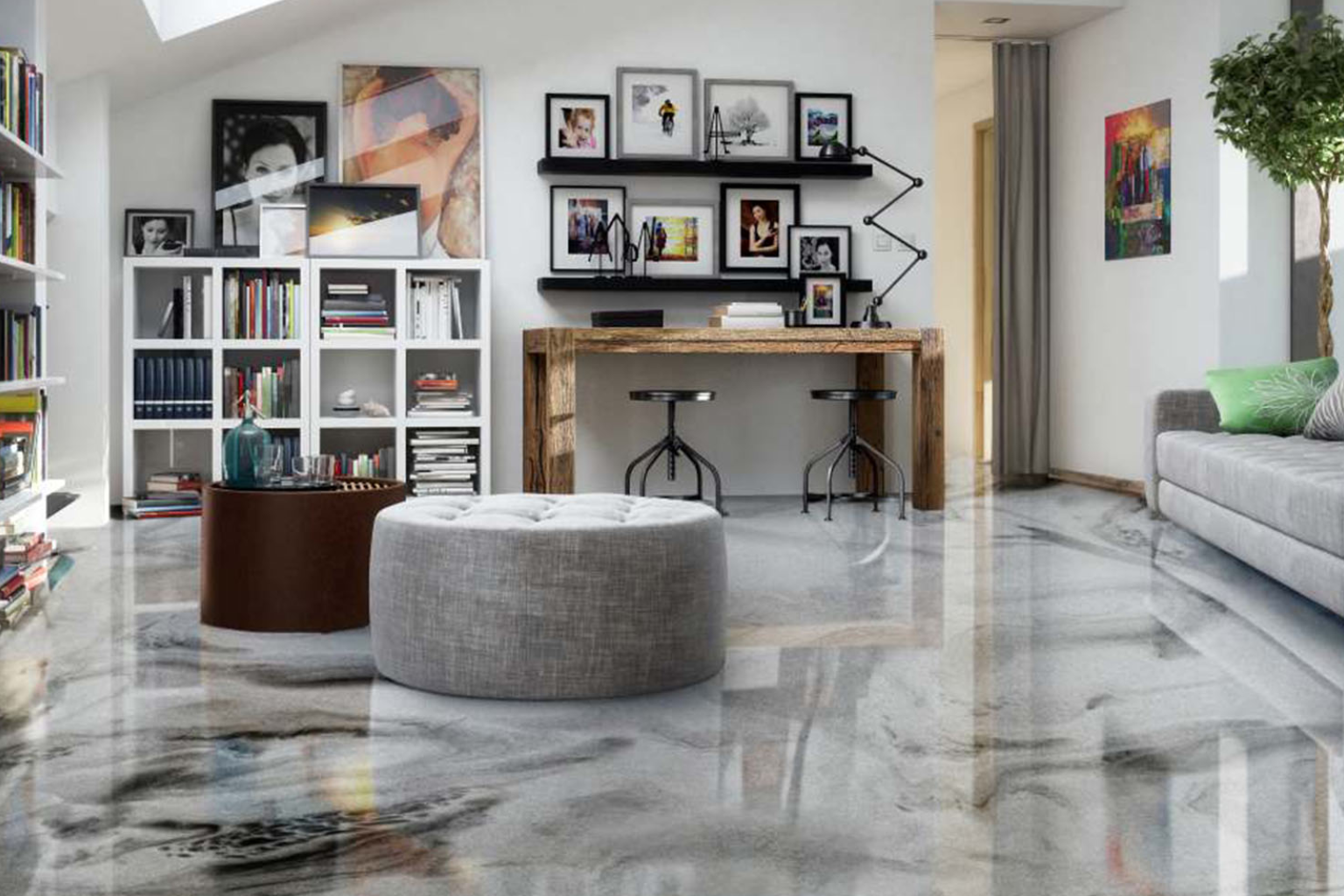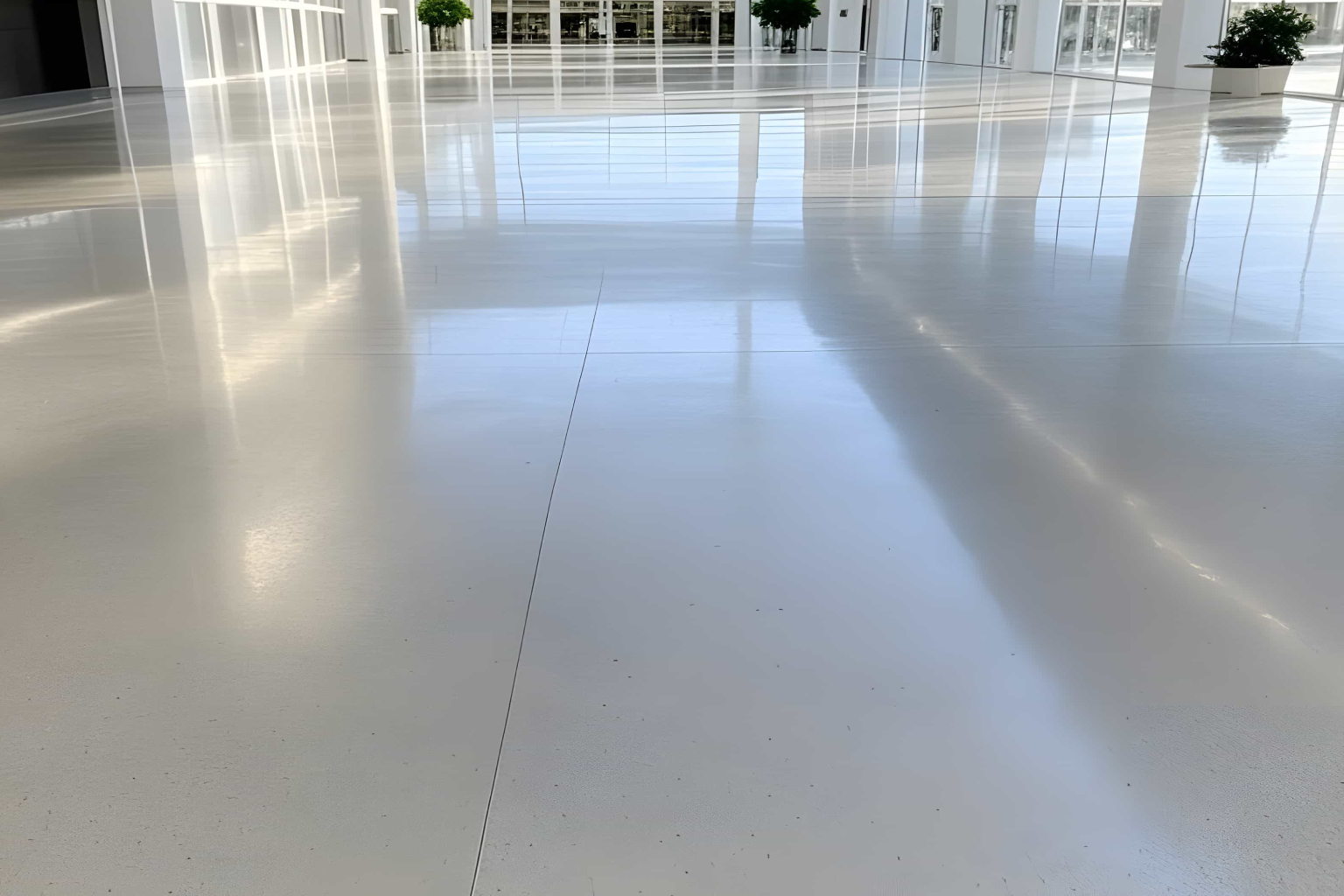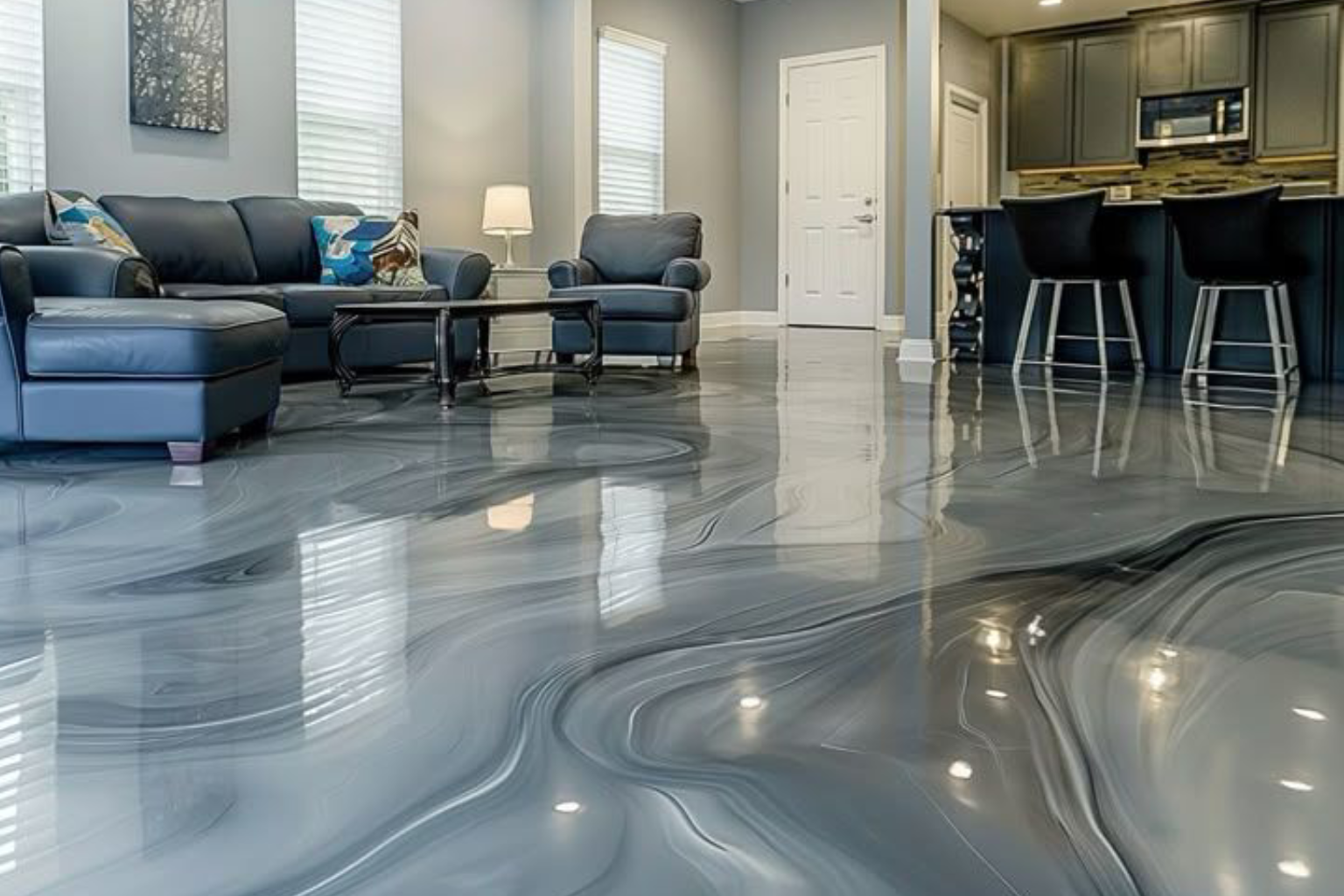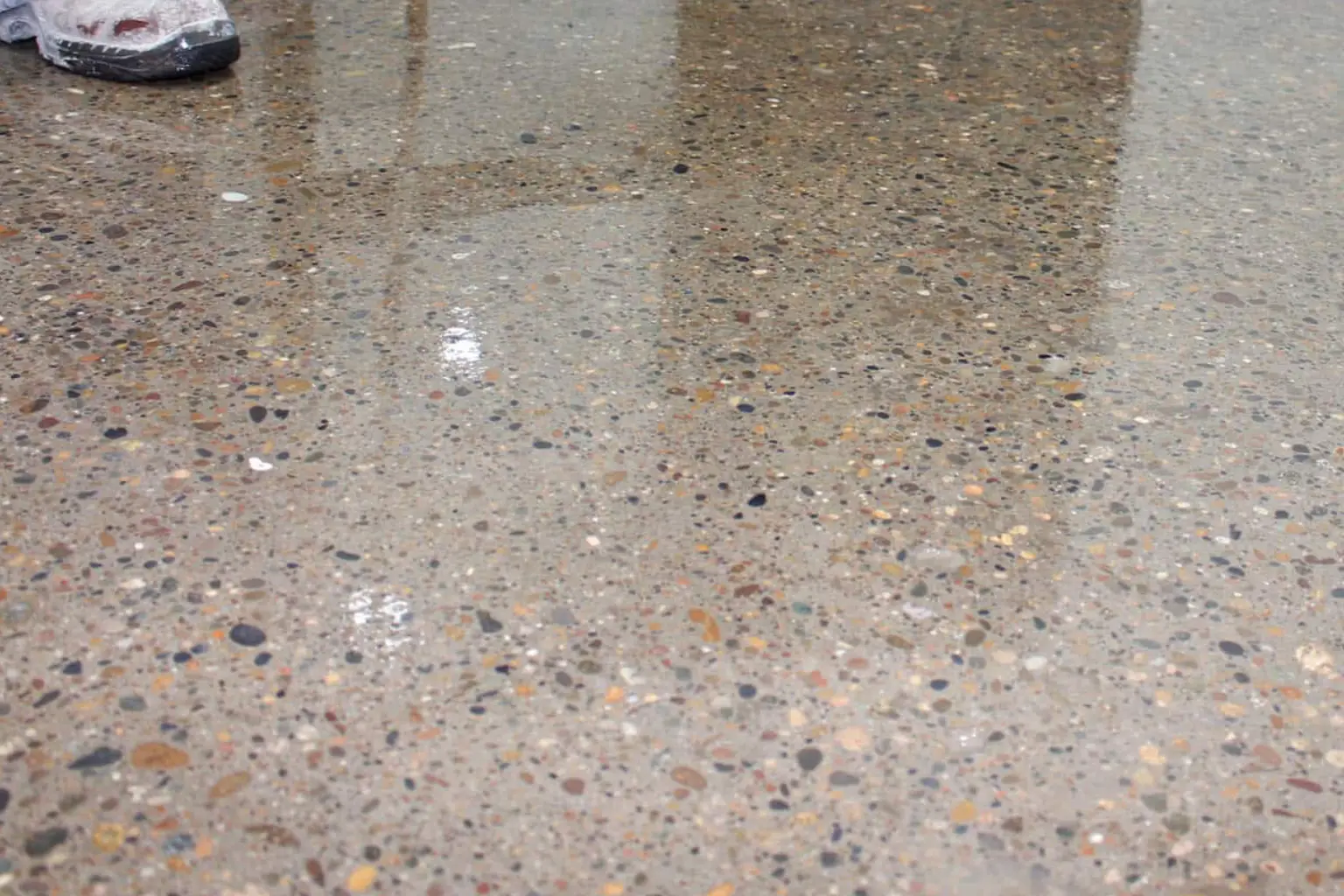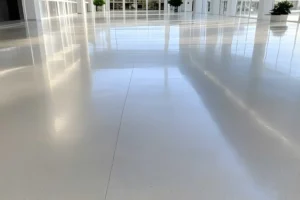Industrial concrete floors experience daily wear from heavy machinery, foot traffic, and spilled chemicals. Over time, the surface can become damaged without proper protection, leading to costly repairs. That’s why sealing concrete floors is so important.
In warehouses, factories, or other commercial spaces, a quality industrial concrete floor sealer keeps floors strong, safe, and easy to maintain. In this guide, we will explain how to seal concrete floor and its significance:
Why Your Concrete Floor Needs Sealing
Concrete appears to be strong, but it is actually porous and absorbs water, oils, dirt, and chemicals. In the long term, this may lead to stains, cracks, and severe damage to the floor. Sealing industrial concrete floors provides a protective layer that prevents such issues and ensures that the surface remains in good condition.
The sealed floor is more robust, simpler to wash, and more protective against moisture and stains. It also appears more attractive, which makes your space look cleaner, more professional, and lasts much longer.
How to Seal a Concrete Floor: Step-by-Step Process
Sealing a concrete floor isn’t complicated, but it does require the right preparation and method to get lasting results. Below is a step-by-step guide to help you understand the process.
1. Prepare the Floor for Sealing
You must ensure that the floor is smooth and clean before sealing. Clean it thoroughly with a good cleaner to ensure that no dirt, dust, oil, or grease is on it. If there are any cracks or holes, repair them first. When the surface is prepared, leave it to dry fully and then begin the procedure of sealing it.
2. Selecting the Proper Sealer
Not all sealers are the same, so it’s important to pick the one that works best for your space. The sealers, which are made of acrylic, are simple to apply and enhance the appearance of the floor. Penetrating sealers are effective against water and chemicals. Epoxy sealers are robust and would be ideal in high-traffic places such as warehouses. Polyurethane sealers deliver a glossy texture and the capability to withstand wear and tear.
3. Apply the Sealer
During the application of the sealer, ensure you cover the surface evenly with the sealant. You can use a roller or a sprayer to achieve smooth coverage. Apply the sealer in thin layers rather than one thick layer, and allow each layer to dry completely before applying the next. This method guarantees a more robust and durable finish.
4. Allow to Dry and Maintain
Sealed, allow the floor to dry for a minimum of one to two days, and then use. This allows the sealer to solidify and form an effective protection. In order to maintain the good condition of your sealed floor, always clean it with mild cleaning solutions, and never use harsh chemicals. With proper maintenance, your floor will remain strong, safe, and looking good for years.
Choosing the Right Industrial Concrete Floor Sealer
All concrete floors do not require the same sealer. The correct decision would be based on the use of your facility and the protection level needed. For example, in the case of heavy equipment in your space, such as warehouses or factories, epoxy or polyurethane sealers are the most durable solution because they can withstand constant wear and load.
Penetrating sealers are preferable in high moisture or in places with frequent spills that penetrate deep into the wall to prevent water damage. When you are tight on budget, yet desire protection and a better appearance, acrylic sealers are a practical option.
Although this might sound easy, selecting the appropriate sealer might not be very easy without a professional opinion. Professional concrete sealing services ensure you receive an optimal solution to your floor requirement, and they also ensure that the application is done correctly so that the effects are long-term.
Benefits of Professional Concrete Sealing Services
While it may seem tempting to seal concrete floors on your own, DIY results often don’t last. Applying a sealer the wrong way can leave uneven coverage, weak spots, or even cause the surface to peel too soon. Professional concrete sealing services ensure that your floor is not only sealed correctly but also protected for years to come.
Key Benefits of Hiring Professionals:
- Professionals know which sealer works best for your facility and environment.
- With the right tools and techniques, they guarantee smooth, even coverage.
- Professional sealing lasts longer, saving you from frequent reapplications.
- Avoid costly repairs by protecting your floor correctly the first time.
- Many professional services back their work with quality assurance.
If you’re serious about protecting your industrial floors, Epoxy Shine is the trusted choice. Their experienced team delivers high-quality sealing that keeps your floors durable, safe, and visually appealing.
Cost of Sealing Industrial Concrete Floors
Sealing an industrial concrete floor does not cost the same money on all projects. It is based on a few aspects, which include the kind of sealer you are using, the size of the floor, and whether the surface requires some repairs before sealing. The overall epoxy flooring cost is also influenced by labor and how the sealer is applied.
Generally, sealing concrete floors typically costs $2 to $7 per square foot. Although this can seem like a huge cost initially, it saves money in the long run. A sealed floor is more durable, requires fewer repairs, and lets you avoid expensive fixes because of cracks, stains, or water damage. It is a wise decision to invest in sealing your floors, avoiding future repairs and maintenance.
| Type of Sealer | Cost per sq. ft. | Features |
| Acrylic Sealers | $2 – $4 | Affordable and gives basic protection |
| Penetrating Sealers | $3 – $5 | Great for moisture and chemical resistance |
| Epoxy Sealers | $4 – $7 | Very strong and ideal for heavy traffic areas |
| Polyurethane Sealers | $5 – $7 | Durable with a glossy, attractive finish |
Conclusion
Sealing concrete floors is one of the smartest ways to protect your facility from wear, chemicals, and costly repairs. By understanding how to seal a concrete floor and choosing the right industrial concrete floor sealer, you ensure durability and safety. While DIY is possible, professional concrete sealing services guarantee the best results.
With expert solutions of Epoxy Shine, maintaining your industrial floors has never been easier. Secure your investment today and keep your facility looking professional for years.
FAQs
Why should I seal an industrial concrete floor?
Sealing industrial concrete floors protects against cracks, stains, and water damage while improving strength and appearance. With concrete sealing, you reduce maintenance costs, avoid costly repairs, and extend your floor’s lifespan, making it a smart long-term investment.
How do I prepare and apply a concrete sealer?
To seal concrete floors, first clean the surface, remove oil or dust, and repair cracks. After drying, choose the right industrial concrete floor sealer. Apply thin coats evenly using a roller or sprayer, allowing each layer to cure properly.
What is the cost of sealing an industrial concrete floor?
The cost of sealing concrete floors usually ranges between $2 and $7 per square foot. Prices depend on the type of concrete floor sealing product, the surface’s condition, and whether you hire professional concrete sealing services for the best results.
How long does a sealed floor last?
A properly sealed concrete floor can last 3 to 10 years. The durability depends on traffic levels, maintenance, and the type of concrete sealing used. Epoxy and polyurethane sealers usually offer the strongest and longest-lasting protection for industrial spaces.
Does epoxy make a concrete floor slippery?
Epoxy can feel slippery when wet, but professional sealing concrete floors services add slip-resistant additives for safety. This makes epoxy floor sealing suitable for warehouses, factories, and other industrial spaces where both durability and safe flooring are essential.



